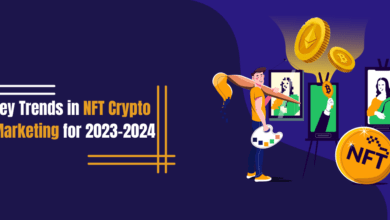Introduction
Content marketing is a powerful strategy that plays a significant role in website monetization. By creating valuable, relevant, and engaging content, website owners can attract a loyal audience, drive traffic, and ultimately monetize their websites effectively. In this comprehensive guide, we will explore the key elements of content marketing and how it can be harnessed to maximize website monetization.
1. Creating Valuable Content
– Understanding Your Audience: Conduct thorough research to understand your target audience’s needs, preferences, and pain points. Tailor your content to address these specific areas.
– Providing Solutions: Offer informative and practical content that provides solutions to your audience’s problems or answers their questions.
2. Search Engine Optimization (SEO)
– Keyword Research: Conduct keyword research to identify relevant and high-traffic keywords that align with your content. Incorporate these keywords naturally into your content to improve search engine rankings.
– On-Page SEO: Optimize your website’s meta tags, headings, and URL structures to improve its visibility in search engine results.
3. Building a Content Strategy
– Content Calendar: Develop a content calendar to plan and organize your content creation efforts. Consistency is crucial in attracting and retaining an audience.
– Diversifying Content Types: Experiment with various content formats, such as blog posts, infographics, videos, podcasts, and e-books, to cater to different audience preferences.
4. Engaging Your Audience
– Interactive Content: Create interactive content, such as quizzes, polls, and surveys, to encourage active participation from your audience.
– Call-to-Action (CTA): Include compelling CTAs within your content to prompt your audience to take desired actions, such as subscribing to your newsletter or exploring affiliate links.
5. Leveraging Social Media
– Social Sharing: Promote your content on various social media platforms to expand your reach and attract new visitors to your website.
– Community Building: Engage with your audience on social media, responding to comments and messages, and fostering a sense of community around your brand.
6. Email Marketing
– Building an Email List: Encourage visitors to subscribe to your newsletter to receive regular updates and exclusive content.
– Email Campaigns: Utilize email marketing to nurture relationships with your audience, promote affiliate products, and drive traffic back to your website.
7. Affiliate Marketing and Sponsored Content
– Strategic Integration: Integrate affiliate marketing and sponsored content seamlessly into your content strategy, ensuring they add value to your audience.
– Transparency and Disclosure: Clearly disclose affiliate links and sponsored content to maintain transparency and trust with your audience.
8. Analyzing Performance
– Tracking Metrics: Use analytics tools to track the performance of your content, such as page views, click-through rates, and conversion rates.
– Iterative Improvement: Continuously analyze the data and insights to optimize your content marketing efforts and improve results over time.
Conclusion
Content marketing is a powerful tool in website monetization, enabling website owners to attract and engage their audience while driving traffic and revenue. By creating valuable, SEO-optimized content, building a robust content strategy, and leveraging social media and email marketing, website owners can effectively monetize their websites.
Additionally, integrating affiliate marketing and sponsored content transparently, and analyzing performance metrics, content marketing becomes a key driver in website monetization success. Remember that consistency, quality, and understanding your audience are the cornerstones of a successful content marketing strategy. With dedication and continuous improvement, content marketing can lead to long-term success and profitability in website monetization endeavors.
